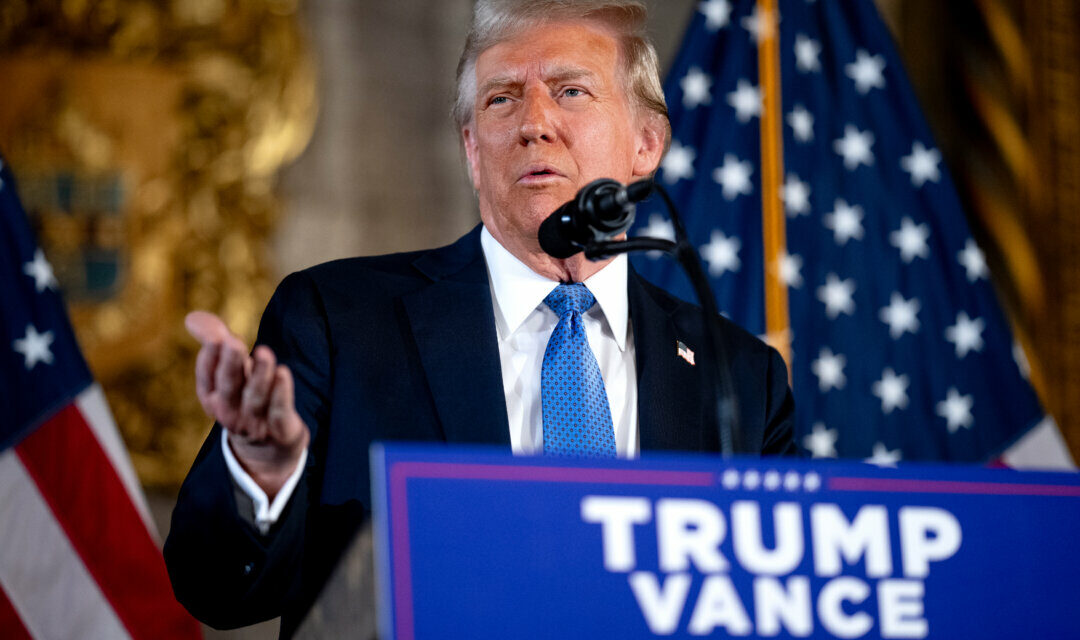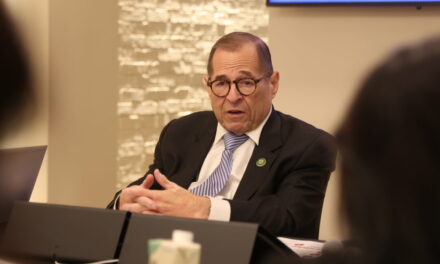We support our Publishers and Content Creators. You can view this story on their website by CLICKING HERE.
Elon Musk joined the debate earlier, urging lawmakers to reject the 1,547 page funding measure.
WASHINGTON—President-elect Donald Trump and Vice President-elect JD Vance have come out in opposition to a massive stopgap funding bill put forward by House Speaker Mike Johnson (R-La.) that wraps in a series of other legislation, marking a rare public break between the two Republican leaders.
“The bill would make it easier to hide the records of the corrupt January 6 committee—which accomplished nothing for the American people and hid security failures that happened that day. This bill would also give Congress a pay increase while many Americans are struggling this Christmas,” the statement read.
Trump’s opposition to the proposal, tied to concerns about the impending debt ceiling battle, all but guarantees that the bill—already facing strong GOP pushback—will be withdrawn, leaving the next steps unclear.
Meanwhile, the Dec. 20 deadline to avert a government shutdown is fast approaching.
Rep. Kat Cammack (R-Fla.) said the bill was “doing incredible damage” within the ideologically diverse House GOP conference.
Divisions among Republicans, already visible prior to the release of the bill, only amplified after Elon Musk—a close ally of Trump—came out against the legislation.
Musk, who’s been selected to head up the Department of Government Efficiency (DOGE), a financial advisory board for the incoming Trump administration, has waged a veritable online crusade against passage of the legislation.
He was joined in that opposition by Vivek Ramaswamy, who’s set to join him in leading the DOGE.
Many of Trump’s allies in Congress have also been outspoken in their opposition.
For Republican critics of the legislation, it looks far too similar to the long-loathed “Christmas omnibus,” describing massive funding bills that have historically been passed at the end of a calendar year to fund the government.
The House Freedom Caucus, the most influential conservative caucus in the House of Representatives, dismissed the bill as a “Cramnibus … with $100+ billion in unpaid-for spending negotiated behind closed doors.”
Rep. Eli Crane (R-Ariz.), who veers toward the right flank of his conference, shared the critique.
The same attitudes have been shared by some Senate Republicans.
“It’s not a clean bill. 1,547 pages—not very clean,” Sen. Rick Scott (R-Fla.) told The Epoch Times. “It has bills in there that’ve never seen a committee, spending that’s not paid for. This is exactly what’s wrong with this place.”
Such criticism against CRs and spending packages is nothing new for Republicans, who have historically been split down the middle in their support for such measures. They’ve only been able to pass due to broad support by Democrats.
Trump’s comments come as lawmakers prepare for the week-long winter recess, their final break before the start of the likely tumultuous new year.
Should Johnson decide to pull the legislation, the alternative would likely be a totally clean CR package that would solely extend government funding to March, leaving the issues of agriculture, health, and hurricane aid for lawmakers’ return in January.

 Conservative
Conservative  Search
Search Trending
Trending Current News
Current News 











